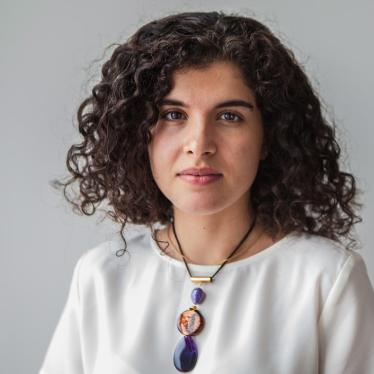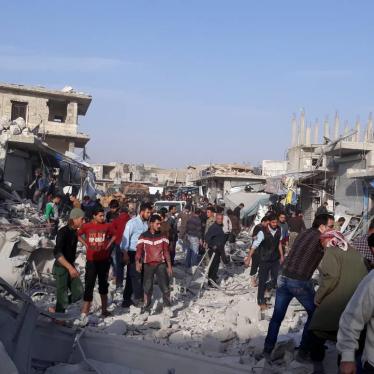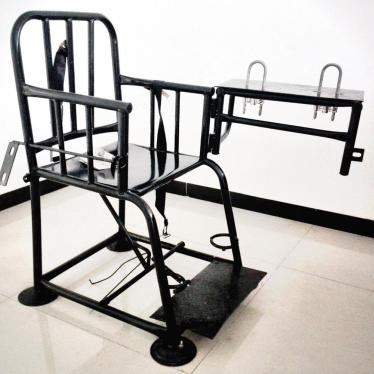In a no man's land along the Syria-Jordan border, an estimated 55,000 Syrians escaped the horrors of Syria's conflict only to languish, abandoned in the desert as one country after another evades responsibility for their safety and wellbeing. Some have been there since at least June 2016.
In a statement to the media on November 9, Jan Egeland, the United Nations humanitarian adviser on Syria, highlighted the complexity of the Syrians' situation. Considering Jordan's total refusal to provide aid across the border, he said, the UN with the help of Russia and the United States has finalized a plan that would provide aid from inside Syria. "Inshallah soon," he said.
"Inshallah soon" is not good enough for the desperate people stranded there. Their situation is steadily deteriorating, as the winter cold sets in.
The Syrians are living in makeshift tents and mud huts in deplorable conditions in an informal camp known as "Rukban", in a desert area just north of a raised sand barrier, or "berm" near the convergence of the Iraqi, Syrian, and Jordanian borders. They were trapped there when Jordan sealed the border following an attack on its soldiers there that was claimed by the Islamic State of Iraq and the Levant (ISIL, also known as ISIS) in June 2016.
In addition to denying Syrians the right to seek asylum, Jordan's border closure has impeded delivery of life-saving humanitarian aid and severely restricted humanitarian agencies' capacity to operate there. The last partial aid delivery was almost six months ago and reached only 35,000 people, according to the UN refugee agency, UNHCR.
On October 8, Jordan announced an end to even limited humanitarian assistance to Rukban from its territory. Its foreign affairs minister, Ayman Safadi, said that Rukban camp "will never be a Jordanian responsibility". He said that aid must come from the Syrian side. The Syrian government itself has made no promises to deliver aid to the camp and has a long track record of blocking humanitarian assistance to opposition-held areas leaving people there to starve.
When aid groups have tried to deliver aid from government-held areas into rebel-held areas, in addition to the serious difficulties of getting the government's permission, they have experienced ongoing hostilities, removal of life-saving material from aid packages, inconsistent access, and attacks on humanitarian convoys.
We recently spoke to four residents at the berm by phone. Abu Ahmed, a refugee from Palmyra who arrived in the Rukban camp over a year and a half ago, described the chaos, poverty, and suffering that characterizes life there. He said his wife has severe kidney problems, which he blamed on polluted water and the lack of adequate medical care.
"She is in a lot of pain," he said. "It doesn't go away. She is the mother of six, the youngest is only one and a half years old. If something happens to her, it will be a catastrophe for us."
About the closed border, he said, "If my wife poses a national security threat, then you can cuff her when you let her in, but please let her in."
Other residents told us they had not had access to drinkable water for 15 days, resulting in diarrhea and dehydration for children and adults. One resident said that "the water is so salty, it is as though we are drinking from the Dead Sea."
Jordan should not reject any Syrian seeking asylum at its border and send them back to face persecution or worse. Tragically, at this point, the issue is not about fundamental principles, but rather about what, at a minimum, Jordan needs to do to prevent deaths in the desert. The immediate need is to allow life-saving aid to cross its border into Syria, but it should also allow in vulnerable individuals and those needing medical care. The plan by the UN, US and Russia to work on a cross-line delivery from Damascus should help to calm any concerns that Jordan has that it will be left to bear the responsibility for Rukban on its own.
Other countries with a stake in the conflict, such as the United States and Russia, also have a role in ensuring the safety and well-being of those at risk. However, international collective action has been consistently marred by diverging interests and backsliding on commitments, even for issues as noncontroversial as access to aid. This failure has spelt catastrophe for people on the ground, with Rukban as only one in a string of horrific examples.
Residents of Rukban need a place where they are safe - where their children do not come under attack or starve to death. The US, Jordan and Russia should stop passing the buck and resolve the serious humanitarian crisis in Rukban camp now. The critical, immediate imperative is for Jordan to re-instate cross-border aid delivery and allow the most vulnerable people to enter the country. The absence of real political will and quick collective action is hampering any solution, and the clock is ticking.









